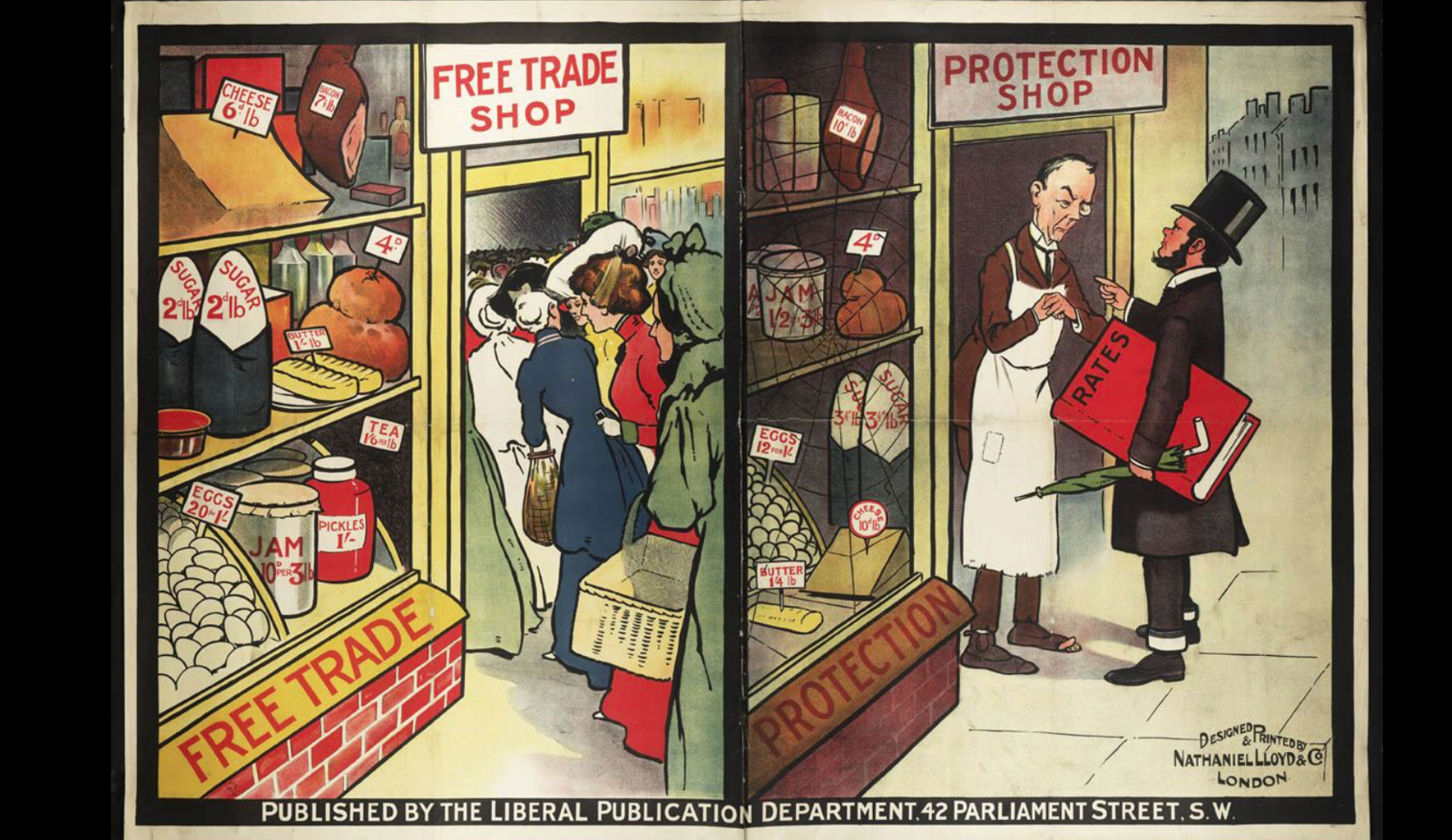1047: Remake of the Constitution of 1937: 2of2: . @RichardAEpstein, @HooverInst.

Photo: How protectionism works. here: political poster from the British Liberal Party (https://en.wikipedia.org/wiki/Liberal_Party_(UK)) displaying their views on the differences between an economy based on Free Trade (https://en.wikipedia.org/wiki/Free_Trade) and Protectionism. The Free Trade shop is shown as full to the brim with customers due to its low prices. The shop based upon Protectionism is shown as suffering from high prices and a lack of customers, with animosity between the business owner and the regulator. http://JohnBatchelorShow.com/contact http://JohnBatchelorShow.com/schedules Parler & Twitter: @BatchelorShow #ClassicRichardEpstein: Remake of the Constitution of 1937: 2of2: . @RichardAEpstein, @HooverInst. "... When the Supreme Court in 1937 first held that business activities inside the states could be regulated by the central government, two horrendous consequences followed. First, much more material was put on the Congressional plate, which in turn tended to overwhelm all three branches of the federal government. Second, the legislation that was passed was highly protectionist by promoting cartel behavior in labor, agriculture, transportation, and communications markets. Those moves were unsound in 1937 and they remain unsound nearly 80 years later. "The Constitution, then, protects us against some of the abuses of government power that make our system today so dysfunctional. Another example is New Deal jurisprudence, which violates the constitutional principle of separation of powers. The New Deal paved the way for the rise of independent administrative agencies that combined legislation and judicial powers in the same body, which in turn were given huge levels of deference by the courts to impose their will on the nation. Hence, the more complex legislative deals could be extended, often in strange ways, by administrative action that was not subject to any effective form of oversight. To give yet another example, the traditional protections that had previously been afforded to private property and economic liberties were substantially eroded by the same deferential attitude toward legislation, both federal and state, that placed an ever stronger stranglehold on the economy...." http://www.hoover.org/research/more-modern-constitution